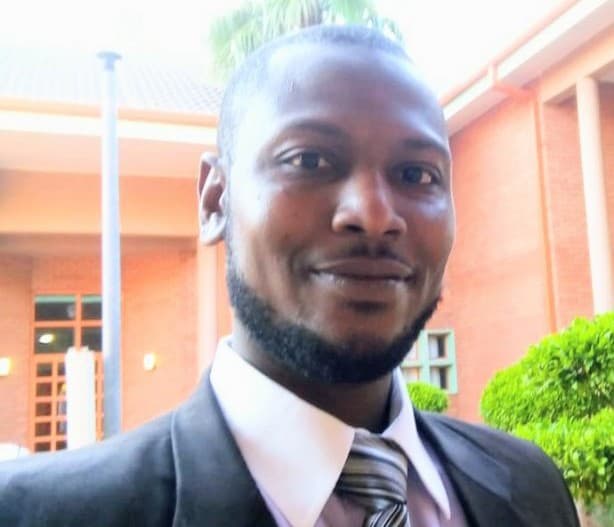By Abdullahi Alfa Mohammed, Esq.

Internet Intermediary refers to a company that facilitates the use of the internet. Such companies include Internet Service Providers (ISPs), search engines and Social Media platforms. The Internet Service Providers in Nigeria includes, but not limited to MTN, AIRTEL, 9MOBILE, GLO etc, Search Engines such as Google, Ask.com etc and social media platforms such as Facebook, Twitter, WhatsApp, Instagram and their likes.
These intermediaries makes information free, cheap, easy to distribute, copy, recombine – too cheap to meter. However, fearful of the darknet in the last two decades, the industry has deployed the rhetoric of the digital threat to demand harsher measures against digital piracy and illegal peer-to-peer file sharing. The indices of darknet includes spread of hate speech, posting of materials inimical to public safety and sharing of materials in which copyright subsists.
A paradigmatic example of the Internet threat discuss is Justice Newman’s statement in Universal v. Chorley(2001) p.1968, responding to the requests of the defendants not to use the Digital Millennium Copyright Act (DCMA) as an instrument of censorship, he replied thus: “here, dissemination itself carries very substantial risk of imminent harm because the mechanism is so unusual by which dissemination of means of circumventing access controls to copyrighted works threaten to produce virtually unstoppable infringement of copyright.”
More recently, the digital threat discourse resounded in the intermediary liability domain in Google Brazil v. Dafra(2014) Frosio, p.31 Justice Solomon from Brazilian Superior Court of Justice stressed the importance of imposing liability on intermediaries, saying ” violations of privacy of individuals and companies, summary trials and public lynching of innocents are routinely reported, all practiced in the worldwide web with substantially increased damage because of the widespread nature of this medium of expression.” Justice Solomon further added that ” if Google created an untamable monster, it should be the only one charged with the disastrous consequences generated by the lack of control of the users of its websites.”
In another landmark case recently before the European Court of Human Right (ECHR), the internet threat discourse resurfaced again to impose proactive monitoring obligation on online news portals. Discussing hate speech, rather than copyright infringement, this time, the ECHR noted that , in the internet, ” defamatory or other types of clearly unlawful speech, inciting violence, can be disseminated, in a matter of seconds and sometimes remain persistently available online (Delfi AS v. Estonia, 2015).
Online Service Providers (OSPs), in trying to exempt liability often tie their Users to End User License Agreements (EULA). An End User License Agreement is a legal contract between a software application author or publisher and the Users of that application. It specifies in detail the rights and restrictions that apply to the software. The EULA activates take-down notices. A Take-down notice is activated upon the request of right holder to hosting providers ( intermediaries) to avoid liability.
As effective as Take-down notices/measures has been, it is not a cure to copyright infringement of right owners or spread of hate speech in online space as it seems to treat only the symptoms for which a right owner may have incurred incalculable losses.
It is also not a cure for hate speeches Online as even where the post constituting hate speech is taken down, the virality characterising inline circulation of the illicit materials posted Online would have caused a lot of damage to the image of the person that the hate speech refers.
The Copyright Act, Cap.c28, Laws of the Federation of Nigeria, 2004, and the recently enacted Federal Competition and Consumer Protection Act, 2019 which safeguards the right of consumers for which information consumers consist, doesn’t state liabilities for Users thereby making the laws in Nigeria either inchoate or in some cases, non existent.
Nigeria must enact laws stringent enough to impose secondary liability on online intermediaries and primary liability on the users of the hosting platforms.
The most pragmatic legislative framework would be a framework that turns online intermediaries into watchdogs on anything that happens on their platforms. It is in increasing the role and liability of Information Service Providers (ISPs) as a target for copyright infringement. The responsibility for detecting and policing infringements online must be placed onto the site itself. The law must be promulgated in such a way as to allow Judges to block access to websites that aid copyright infringements and spread of hate speeches in the online space.
The new legislation contemplated must also expand intermediary liability in the Copyright Act, introducing a doctrine of secondary liability providing obligations for ISPs to reveal identities of alleged copyright infringers and purveyors of hate speech as well as expanding the powers of Copyright Commission – an administrative body in Nigeria to order injunctions against Internet Service Providers who infringe copyright.
Abdullahi Alfa Mohammed, Esq. was called to the Nigerian bar in 2010. He had his pupillage at the law firm of Messrs Mamman Nasir & Co. (The Solicitors), Kaduna State. Mohammed currently works with the Nigerian Copyright Commission as Principal Copyright Officer. He can be reached at abdoollah971@gmail.com


